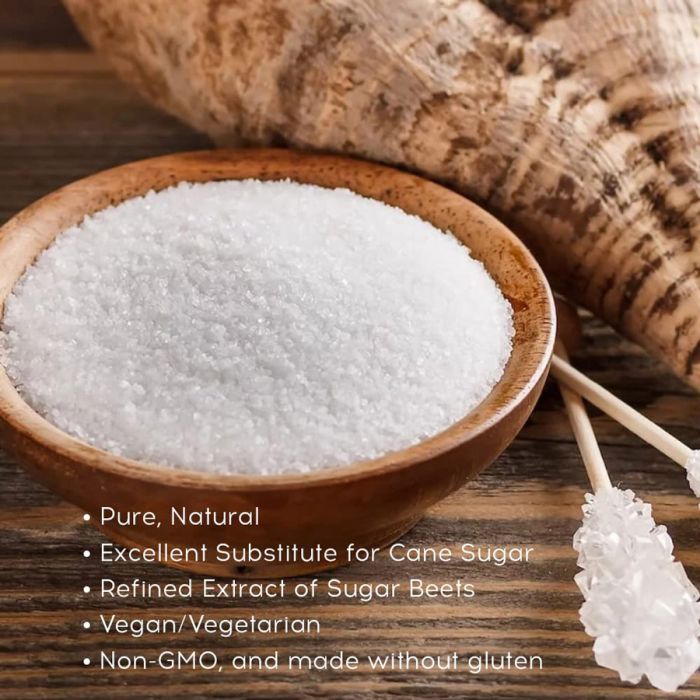In discussions of beet sugar vs cane sugar, the source of the sugar plays a important role in its properties.
In discussions of beet sugar vs cane sugar, the source of the sugar plays a important role in its properties.
Blog Article
A Detailed Look at the Conveniences and Uses of Beet Sugar Vs Cane Sugar for Sweetening Options
In the realm of sweetening, both beet sugar and cane sugar offer unique advantages and cooking duties, albeit with comparable nutritional profiles. While beet sugar boasts a neutral taste perfect for various recipes, cane sugar enhances meals with refined sugar undertones.
Beginnings and Processing Techniques of Beet Sugar and Cane Sugar
Beet sugar and cane sugar, 2 predominant sweeteners, originate from very distinctive plants and undertake various handling techniques. Beet sugar is drawn out from the sugar beet, a root veggie, largely expanded in cooler climates.
Alternatively, cane sugar comes from the sugarcane plant, a tropical yard. Its processing begins with gathering the cane, squashing it to acquire the juice, and after that boiling this fluid to form sugar crystals.
Nutritional Contrast: Beet Sugar Versus Cane Sugar

When contrasting the dietary content of beet sugar and cane sugar, it comes to be apparent that both kinds provide a comparable power value. Both beet and cane sugar are 99.9% pure sucrose, making them essentially identical in terms of calorie web content and nutritional account.
However, mild differences might arise from the very little micronutrient that remain after processing, though these are as well small to influence overall health and wellness. For circumstances, cane sugar can preserve traces of molasses, depending upon the level of refining, which might include tiny amounts of calcium, iron, and potassium. Beet sugar, on the various other hand, commonly goes through a procedure that gets rid of these micronutrient better, leading to an even purer type of sucrose.
Culinary Makes Use Of and Flavor Profiles
Regardless of their dietary similarities, beet sugar and cane sugar diverge notably in their culinary applications and flavor subtleties. Beet sugar, obtained from sugar beets, usually has a very neutral taste, making it a recommended option in baking where it seamlessly incorporates without altering the flavor account of other components.
Cooks and home cooks alike choose sugars based on these qualities. While both sugars work in a similar way in terms of sweetness and physical buildings, the slight flavor difference can affect the end result of a recipe dramatically, leading the selection in between beet and cane sugar based on the preferred end result in cooking developments.
Health And Wellness Implications of Consuming Beet and Cane Sugars
Although beet sugar and cane sugar are commonly utilized reciprocally in cooking and cooking, their wellness ramifications can vary subtly as a result of their distinctive handling techniques. Both sugars provide concerning the exact same amount of calories and carbohydrates per tsp, basically using similar power payments without any type of innate dietary benefits. However, the refining process for each and every sugar can alter the visibility of trace element and compounds, although these variations are normally marginal and not substantial sufficient to affect one's wellness meaningfully.
The main wellness worry about both kinds of sugar relate to their contribution to extreme calorie consumption, potentially bring about weight gain, and associated illness like type 2 diabetes mellitus and heart illness when eaten in big quantities. Regardless of the source, small amounts is crucial in eating beet or cane sugars. Wellness experts commonly recommend limiting sugarcoated in any kind of kind to maintain ideal health and wellness end results.
Environmental Effect and Sustainability of Sugar Production

Conversely, sugar beet handling has a tendency to create big quantities of pulp waste, which can be repurposed as animal feed or wikipedia reference exchanged bioenergy, consequently reducing some ecological effects (beet sugar vs cane sugar). Inevitably, the sustainability of sugar manufacturing rests on embracing even more green farming methods and waste management techniques to lower the ecological impact of both sugar kinds

Conclusion
To conclude, both beet and cane sugars provide beneficial sweetening options, each with distinctive benefits and disadvantages. While they are nutritionally comparable, their growing impacts and flavor accounts vary substantially. Beet sugar is remarkable for its sustainability and neutral preference, whereas cane sugar is valued for its abundant flavor. Consumers ought to take into consideration these elements, along with the environmental click here for more info effects of sugar production, to make informed choices concerning sugar intake that straighten with culinary needs and honest values.
Report this page